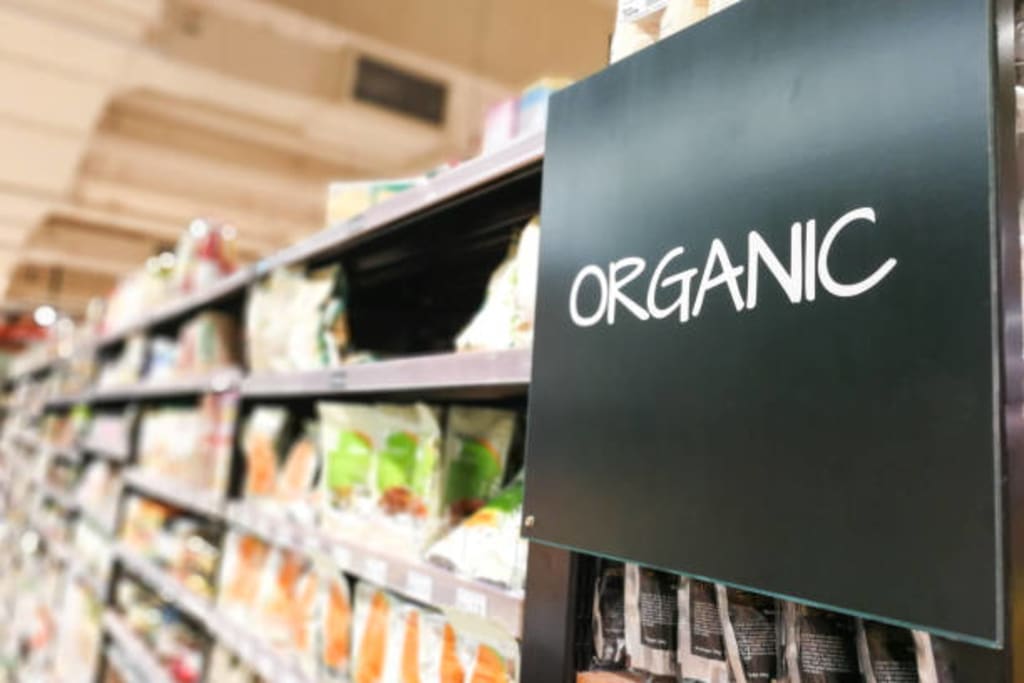Is organic food better than conventional food?
This is what science has found.

Every human being experiences this. You're in the store, and you're trying to decide whether to get some fresh vegetables and produce. You have two options: ordinary or organic. It is an odd question because it has a variety of implications for people. In contrast to other products, organic foods are more nutritious and healthier. For others, it means it is environmentally friendly, or yummy. It can be used to describe clean, great, or more expensive. Despite multiple scientific studies and publications that suggest organic food is not as good as most people think, many more are coming in to build up this argument.
Quality does not increase with price.
Organic food has increased in value at a rate of about 10% each year since 2010, according to estimates. It doesn't matter if you want healthier food for the environment; it's here, and it's better for you. However, let's take a look at the numbers. On average, organic food is approximately 47% more expensive than conventional food. The USDA estimates are also comparable. A 2015 study published in the Proceedings of the National Academy of Sciences indicated that organic food is just 5-7% more expensive to produce than non-organic food, which is why the price difference does not appear to be justified. So in other words, the term 'organic' has come to mean 'luxury' from a pricing perspective.
One of the fastest-growing food industries in the United States is organic food, and it is simply too expensive. All in all, though, you're better off.
More organically grown food and your health
Do not continue reading if you're concerned about learning about a possible spoiler regarding organic foods and their purported health benefits. Although a diet rich in organic goods is better for you, this claim is questionable.
According to a 2009 meta-analysis (an examination of previous studies), there is no difference in the nutritious composition of organic vs conventional foods. Since then, we've had even more and more researchers examining the case, and their findings were also quite comparable. In a 2012 study, it was observed that organic fruit had slightly greater amounts of phosphorus, and in a 2014 study, it was revealed that organic food had much higher levels of antioxidants and lower levels of cadmium. To begin with, those are great features, but the differences aren't amazing, and for that reason, they don't warrant the higher price.
This second major meta-analysis was released in 2012. A team from Stanford did a deep analysis of 240 research studies. 17 papers found that people on organic food and conventional food diets have different nutrient levels in their blood, and 223 papers demonstrated that various products (fruits, vegetables, grains, meats, milk, poultry, and eggs) grown organically and conventionally have different levels of bacterial, fungal, or pesticide contamination. No persistent changes in the vitamin content of organic goods have been found. The one major nutritional increase that could be found in organic versus conventional vegetables was in the amount of phosphorus. Organic milk contained increased quantities of omega-3 fatty acids, although the protein and fat content were the same.
The ecology and organic foods
I found this portion most shocking. In a sense, it is. In my opinion, organic animal husbandry is more ethical than conventional farming. By incorporating organic principles and rules, companies are required to provide an environment in which animals are treated humanely, or as humanely as feasible. We ensure a degree of comfort for animals by implementing strict animal housing regulations. There are several differences between veggies and other foods.
Some organic pesticides may have a worse environmental impact than conventional ones, according to a 2010 study. But in reality, most people believe that organic food does not use pesticides. Nearly all consumers in the UK say their most important reason for purchasing organic food is to avoid pesticides. Because non-GMO food is organic, and thus some plants are less resistant, sometimes more pesticides are required. This is because organic pesticides differ from traditional pesticides, but the difference between them is not large. You might be wondering why we use organic pesticides in the first place. One reason is that organic pesticides are derived from natural sources and aren't treated, but they also include the same ingredients as ordinary pesticides.
The answer to this question may be found in research performed by evolutionary scientist Christie Wilcox. In a 2012 Scientific American article, she writes that “are lower pesticide residues a reasonable incentive to buy organic?” While organic pesticides have health hazards equal to those of conventional pesticides, this statement is inaccurate.
But when compared to conventional farming, the environmental impact of organic crops was no different, according to experts at Oxford University who assessed 71 peer-reviewed publications. Conventional milk, cereals, and pork generate higher greenhouse gas emissions per product, but organic milk, cereals, and pork generate lower greenhouse gas emissions per product when organic beef and olives are the choices of study participants.
On average, organic products use 84% more land than conventional products. Produce that is certified organic creates higher amounts of nitrogen and nitrous oxide emissions as well as ammonia emissions and has more potential to cause acidification. While the yield is typically smaller (55 percent less in England, for example). Also, recent research found that because corporate farmers conduct the majority of organic farming now, with lower yields and increased use of machinery, organic agriculture generally creates more emissions and pollutants than conventional farming.
Conventional agriculture does have the ability to prevent soil erosion, but I have not found a comprehensive meta-analysis.
Additionally, while researching this piece, I was dismayed to learn that in the US, organic farms do not generously treat their workers.
Well, what do we want to do?
Not at all. I am not arguing that all organic food is terrible. One of my biggest concerns is eating and shopping for healthy, sustainable food. Much like other people, I have a lot of interest in what I eat. The basic line is that, whether you like organic or conventional foods, if you want to purchase more nutritious food and you want to limit your environmental effect, you should shop locally. Fruits and vegetables bought from a local source are usually cost-competitive with supermarkets, the goods are fresher, and fewer CO2 emissions are produced, and local farmers are more than willing to answer any questions you might have. Moreover, you'll be helping small companies by promoting organic farming instead of big corporations overtaking the organic agricultural market.
Although I anticipate that this article will draw a substantial amount of abuse, I encourage you to share your opinion and make your thoughts known in the comments section. Remember that even if something is advertised as being healthy and environmentally conscious, it doesn't necessarily mean it is. If you keep an open mind and regularly test your opinions against scientific data and facts, you should have no trouble finding new facts to broaden your knowledge. Our goal is to encourage that.





Comments
There are no comments for this story
Be the first to respond and start the conversation.